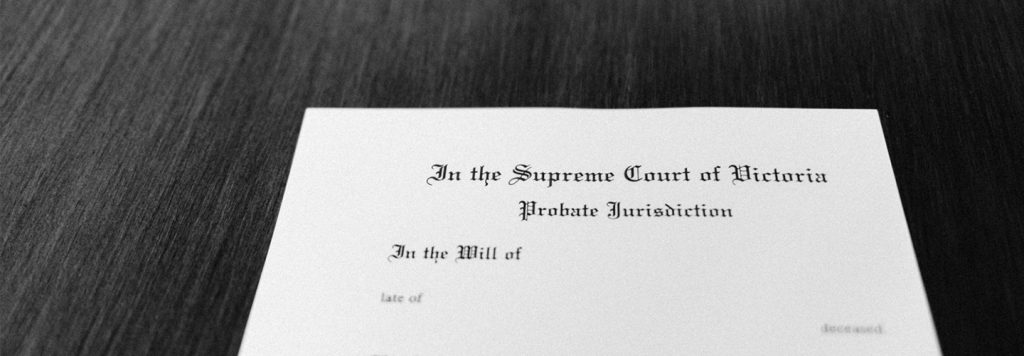What is a Will?
A Will is a legal document that begins upon your death, setting out your wishes for the distribution of your assets (your “Estate”) after your death. Inside the Will, you can specify who is responsible for making sure your wishes are followed (your “Executor”), and where and to whom your assets are to be distributed (your “Beneficiaries”).
Deciding how your estate will be dealt with requires careful planning – for example assets held as joint tenants pass to surviving tenants regardless of what is stated in the Will, and it is important you are aware of how all your assets will be distributed.
Confronting our own mortality can be difficult and discussing these issues with loved ones is often avoided. Similarly, children, siblings, parents and business partners can also find these issues sensitive and confronting. However a Will is essential as it ensures your assets are protected and that your estate is divided the way you want it to be. Without a Will, your estate will be divided according to the law, which may not align with your wishes.
Ideally you should review your Will every 5 years or otherwise upon the occurrence of a major life event to determine whether your Will needs to be updated.
We recognize that the needs of our clients vary and give consideration to each individual when preparing his or her Will.
“A simple will is inexpensive, but the peace of mind it brings is priceless.”
Powers of Attorney
A General Power of Attorney is a separate document, which ends upon your death. It is useful while you are alive in that it allows someone to act on your behalf in matters such as banking, paying your bills and handling your assets.
Life can sometimes be unpredictable—you may have an accident, become suddenly ill, or absent unexpectedly from your normal life. This may in turn require you to rely on someone you can trust to manage your financial affairs. An Enduring Power of Attorney is useful as it continues after you are no longer able to make decisions on your behalf or handle your own affairs.
In the event you do not have one, a government department will need to decide who should look after your affairs in the event you are not able to do so. This can be very stressful, as well as financially draining on your loved ones. It is for this reason, we suggest people seriously consider delegating this power to a person whom you trust, and who you know will follow and respect your wishes. You should also note the delegation of this power to your Attorney does not by itself prevent you or in any way restrict you from continuing to make your own decisions until you are no longer able to.
In order to make sure your document is dealt with in the way you want it to be dealt with, it is essential that you get a lawyer to draft your will and powers of attorney.
It is important to note that Powers of Attorney are no longer applicable as soon as you have passed away, as your Will is responsible for dealing with your estate and assets.
What happens if you do not have a Will when you pass away?
When a person passes away without leaving a Will, or a valid Will, they are considered to have died “intestate” and their estate will be distributed according to the laws of Victoria. This usually means that a surviving spouse receives the first $100,000 of the estate and anything left over is then divided between the surviving spouse and any surviving children in equal shares.
Many people do not want their Estate to be distributed this way, which is why it is so important to make a valid Will.

